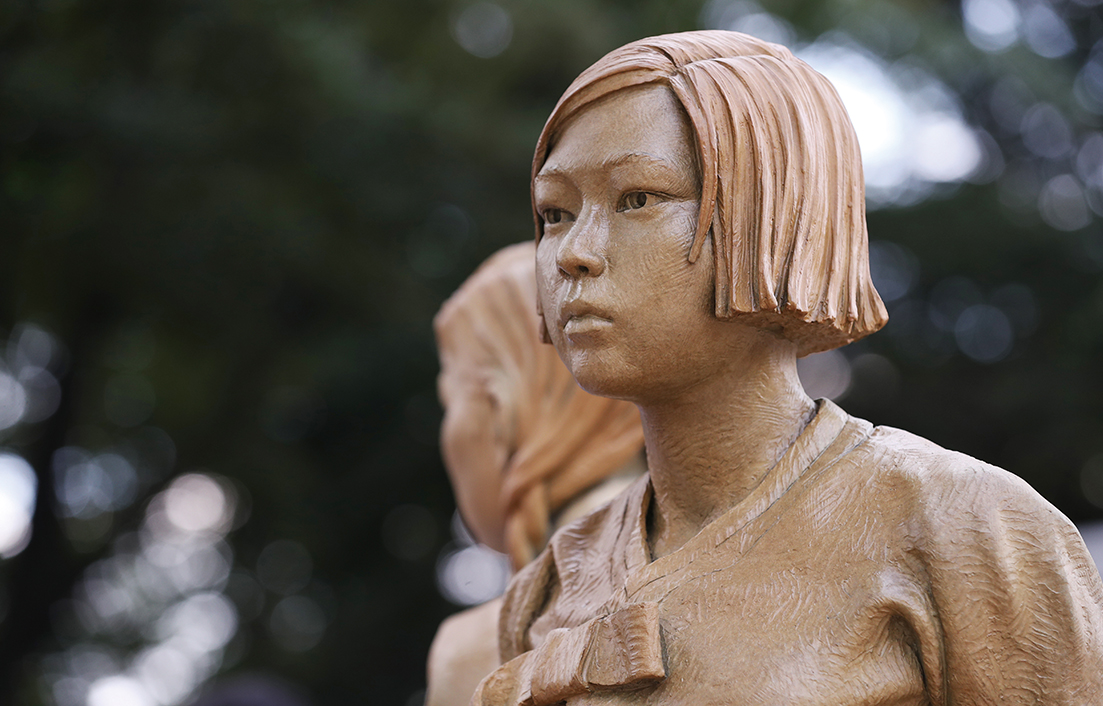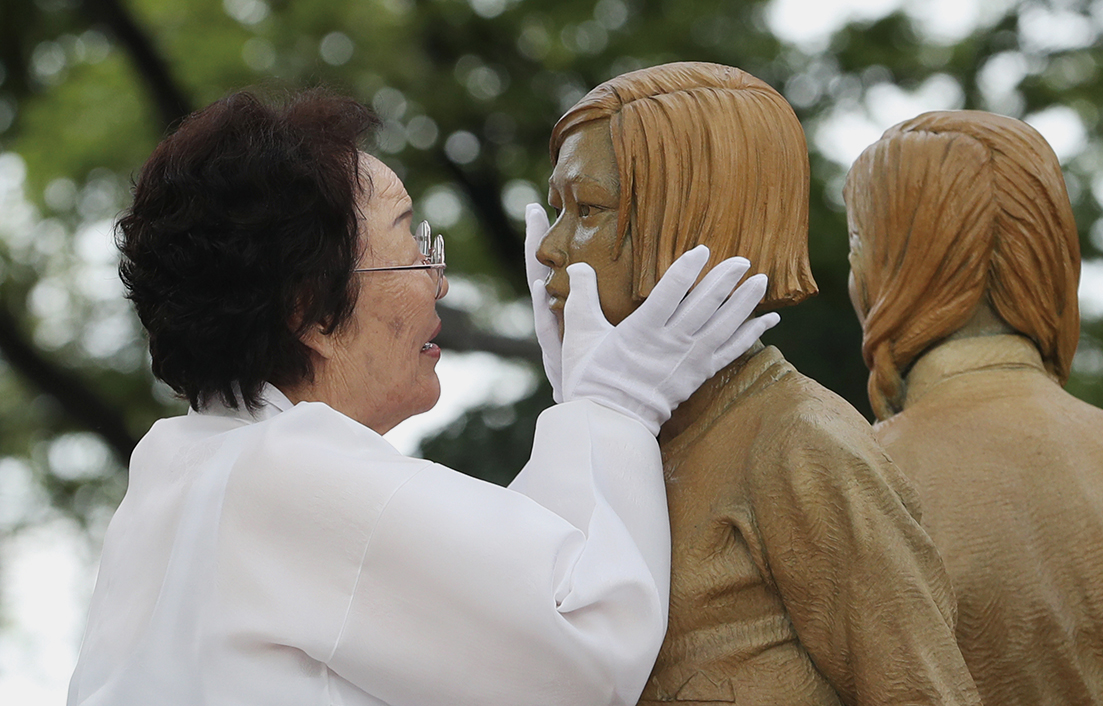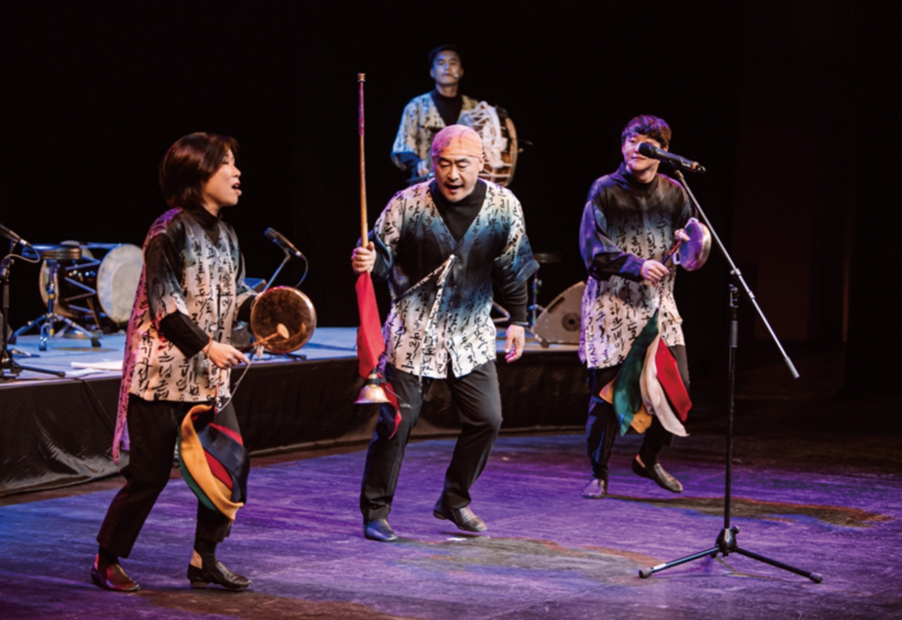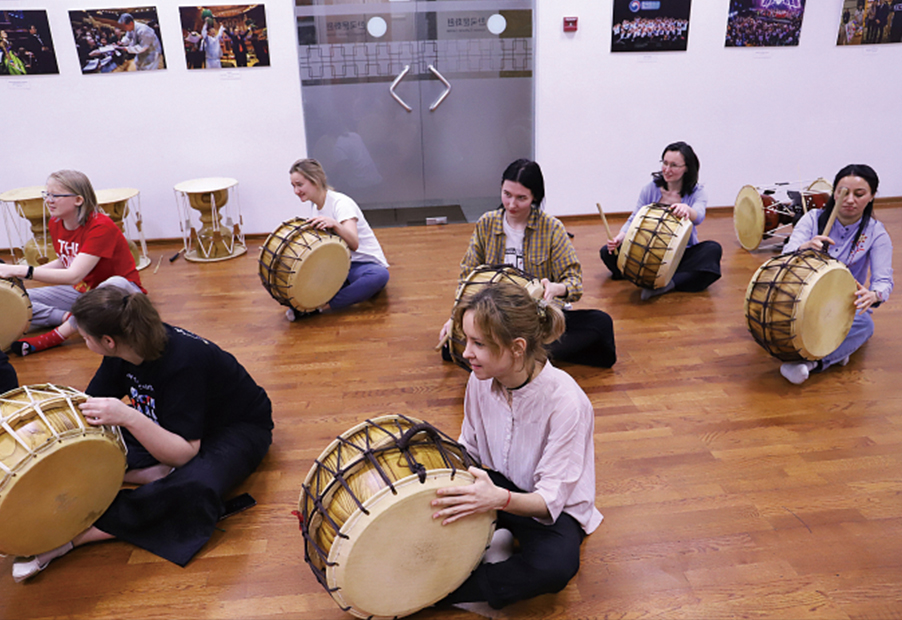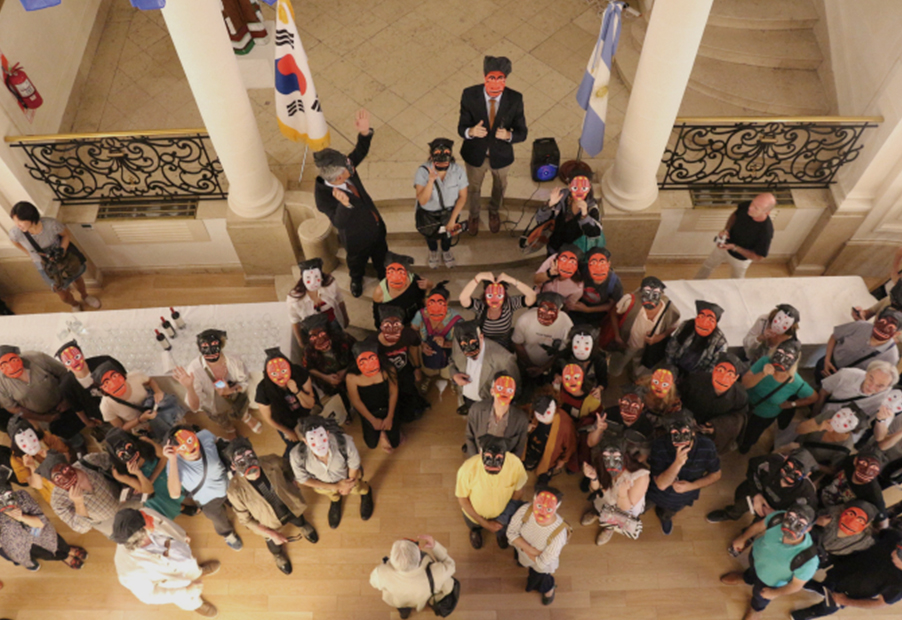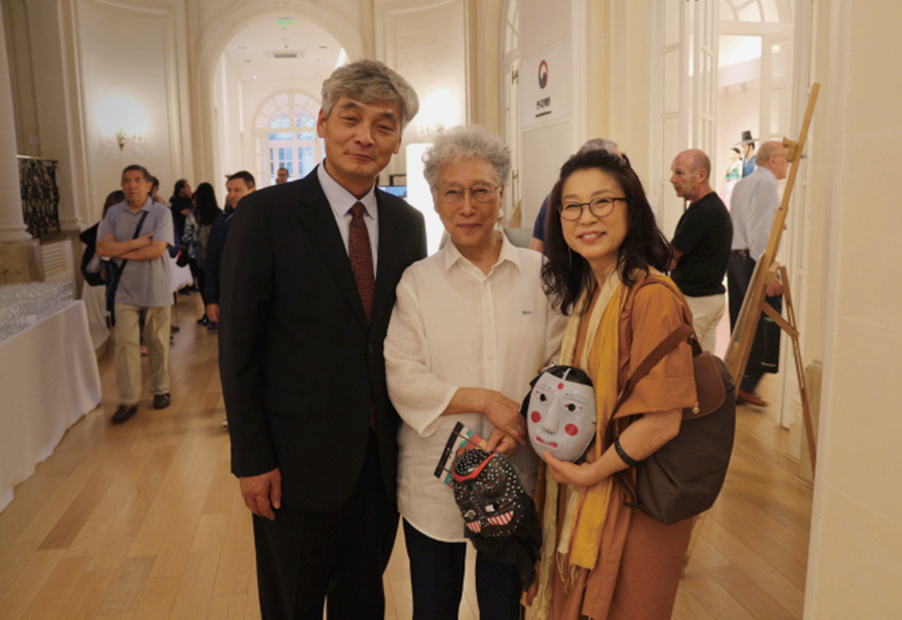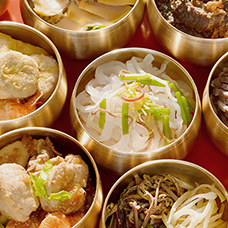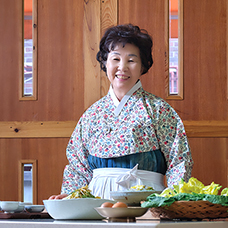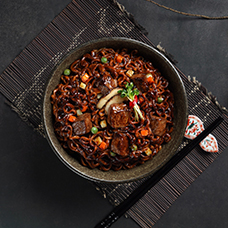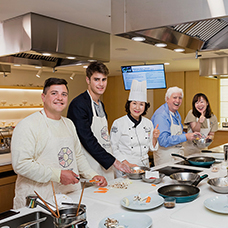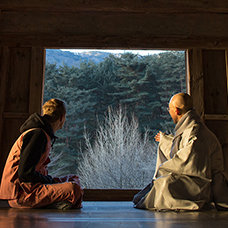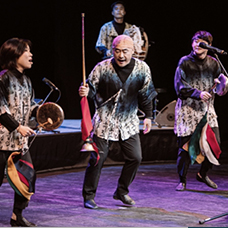Global Korea I
Fusion Gugak in Moscow
 Moscow, Russia
Moscow, Russia
Noreum Machi, a Korean musical group specializing in fusion gugak (traditional Korean music), on Jan. 28 performed at the Moscow International Performing Arts Center.
The group has performed in 200 cities spanning over 60 countries. Founded in 1993, it explores new forms of traditional Korean music that enhances accessibility while retaining authenticity.
The KCC in Moscow hosted this event to mark the 30th anniversary of Korean-Russian ties. Over 500 attendees saw a performance of traditional Korean instruments as well as those of farmer and shamanist music and an array of traditional genres and rhythms. Percussion performances and choreography also impressed the audience.
Upon completing its performance, Noreum Machi taught the integral movements of samulnori (traditional percussion music) in a workshop for two days. The group then held as a finale a mini-concert with workshop participants.
Global Korea I
Mask Exhibition ‘Tal: Other Faces’
 Buenos Aires, Argentina
Buenos Aires, Argentina
The KCC in Buenos Aires on Feb. 18 held the opening ceremony for the exhibition “Tal: Other Faces.” Among the exhibits were 25 traditional Korean masks (tal) from the Hahoe Mask Museum in Andong, Gyeongsangbukdo Province, ranging from provincial versions like those of Goseong Ogwangdae and Bukcheong sajanori (lion folk play) to shamanistic editions like the Cheoyong and Bangsangssi variants.
An audience of about 150 people attended the ceremony including the director of Argentina’s Mask Institute (Instituto de la Máscara), Mario Buchbinder, and around 100 domestic artists. Renowned author Luisa Valenzuela, who penned “Diario de Máscaras,” said, “I was enamored by the singular charms and originality of Korean masks. Through Korea’s tal, we can get a glimpse of its traditional societies.”
Each member of the audience received a mask, and some took group photos wearing the masks.
Global Korea II
Professor Discusses
‘Comfort Women’ at KCC in London
Written By Korea.net Honorary Reporter • Marianna Szucs from Hungary Photo courtesy of • Korea.net
The Korean Cultural Center in London hosts diverse literary events. Its monthly book event “Korean Literature Nights” has grown so popular that even the most devoted regulars struggle to obtain tickets, especially to Q&A sessions with visiting Korean authors.
I had attended events on the “comfort women,” a euphemism for women forced into sexual slavery by the Japanese imperial military before and during World War II, such as discussions, lectures and screenings of documentaries and big-screen films. Thus I attended on Feb. 21 a lecture given by Ahn Yon-son, a professor and chair of Korean Studies at Goethe University of Germany, on her recent book “Whose Comfort? Body, Sexuality and Identities of Korean ‘Comfort Women’ and Japanese Soldiers during WWII.”
She explored the complexities of the sex slave issue like how the female body can symbolize the body of a nation, in which case violating the female body can be interpreted as doing so to the country and shaming national pride. She also spoke of how society stigmatized the victims and encouraged collective amnesia of the crimes, as well as how “irrepressible” male sexuality “legitimized” the sex slave system.
Ahn also asked the audience to imagine the horror of a war in which veterans remember the victims as the last remaining light of humanity and their positive, “peaceful” and sweet memories of the sex slaves.
The professor urged that the sex slave issue should lead to global solidarity and higher awareness as sexual abuse occurs not only during war, but also in times of peace. This was the first time that I heard of such a proposal.
She said global conferences on sexual violence could raise awareness of the issue and get like-minded professionals to initiate conversations and break the silence on the topic. For example, the Korean Angels charity group is starting amazing initiatives in Asia, wherein their aims are not simply to remember the past, but progressively implement projects to inform and engage the younger generation in the process.
I left the event reflecting that the world must join forces to educate future generations toward the unanimous goal of ending the exploitation, abuse and harassment of women and all of humankind.
